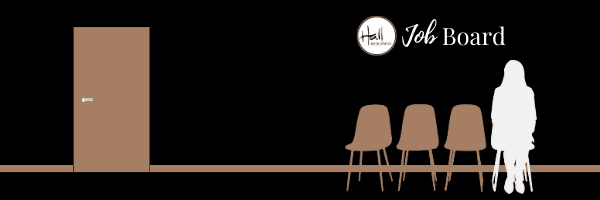Skills We’ve Lost – Lesson Four

Professional Communication Skills: Enhancing Your Workplace Interactions
In today’s fast-paced, digitally connected world, professional communication skills are more crucial than ever. Whether it’s crafting a well-structured email, writing a formal letter, or engaging in face-to-face conversations, the ability to communicate clearly and effectively can significantly impact your career and workplace dynamics. In this blog post, we will explore the key components of professional communication, offer practical tips for improving these skills, and highlight their importance in various workplace scenarios.
The Importance of Professional Communication Skills
- Building Relationships: Effective communication helps build strong professional relationships, fostering trust and collaboration among colleagues, clients, and stakeholders.
- Clarity and Precision: Clear communication ensures that messages are understood as intended, reducing the risk of misunderstandings and errors.
- Professionalism: Good communication reflects positively on you and your organisation, showcasing your professionalism and attention to detail.
- Efficiency: Effective communication saves time by ensuring that information is conveyed accurately and concisely, preventing the need for repeated explanations or corrections.
Key Components of Professional Communication
- Email Etiquette: Writing clear, concise, and professional emails is essential in the modern workplace.
- Subject Line: Use a clear and relevant subject line to indicate the email’s purpose.
- Salutation: Start with a polite greeting, such as “Dear [Name]” or “Hello [Name].”
- Body: Be concise and to the point. Use paragraphs to separate different points and make the email easy to read.
- Closing: End with a polite closing, such as “Best regards” or “Sincerely,” followed by your name and contact information.
- Proofread: Always proofread your email for spelling, grammar, and clarity before sending.
- Letter Writing: Formal letters are still an important form of communication in many professional settings.
- Format: Follow a standard business letter format, including your contact information, the recipient’s contact information, the date, a salutation, the body of the letter, a closing, and your signature.
- Tone: Maintain a formal and respectful tone throughout the letter.
- Content: Be clear and concise, stating your purpose early in the letter and providing any necessary details or context.
- Proofread: Check for spelling, grammar, and formatting errors before sending the letter.
- Face-to-Face Communication: Verbal communication skills are vital for meetings, presentations, and everyday interactions.
- Active Listening: Pay attention to the speaker, show interest, and provide feedback to demonstrate understanding.
- Clarity and Conciseness: Speak clearly and concisely, avoiding jargon or overly complex language.
- Non-Verbal Cues: Use appropriate body language, eye contact, and facial expressions to convey your message effectively.
- Respect and Courtesy: Be respectful and courteous in all interactions, regardless of the situation or your role.
- Telephone Etiquette: Professional phone communication is essential for clear and effective remote interactions.
- Greeting: Answer the phone with a polite greeting, stating your name and organisation.
- Tone of Voice: Use a friendly and professional tone of voice.
- Clarity: Speak clearly and at a moderate pace to ensure the other party understands you.
- Active Listening: Listen attentively, take notes if necessary, and respond appropriately.
- Closing: End the call with a polite closing, such as “Thank you for your time” or “Have a great day.”
Practical Test: Communication Skills Exercise
To improve your professional communication skills, try the following exercise:
- Email Writing: Write an email to a colleague or client, following the email etiquette guidelines provided. Proofread the email before sending.
- Formal Letter: Draft a formal letter on a relevant topic, such as a job application or a business proposal. Use the standard business letter format and proofread carefully.
- Role-Playing: Practice face-to-face communication with a friend or colleague. Take turns speaking and listening, focusing on clarity, conciseness, and non-verbal cues.
- Phone Conversation: Conduct a mock phone call, paying attention to your greeting, tone of voice, clarity, active listening, and closing.
Real-Life Modern Workplace Examples
- Client Relations: Clear and professional communication with clients builds trust and strengthens relationships, leading to better client satisfaction and loyalty.
- Team Collaboration: Effective communication within teams ensures that everyone is on the same page, reducing misunderstandings and improving project outcomes.
- Leadership: Strong communication skills are essential for leaders to convey their vision, motivate their team, and provide clear guidance.
- Conflict Resolution: Professional communication helps resolve conflicts quickly and amicably by facilitating understanding and cooperation.
Benefits of Professional Communication Skills
- Enhanced Professional Image: Good communication reflects well on you and your organisation, demonstrating your competence and professionalism.
- Increased Productivity: Clear and concise communication saves time and reduces the likelihood of errors, enhancing overall productivity.
- Stronger Relationships: Building strong professional relationships through effective communication fosters a positive and collaborative work environment.
- Career Advancement: Strong communication skills are highly valued by employers and can open doors to new opportunities and career growth.
Mastering professional communication skills is essential for success in the modern workplace. By following the guidelines and practicing the techniques outlined in this post, you can improve your ability to communicate clearly, effectively, and professionally in any situation. Stay tuned for the next post in our series, where we will explore time management and scheduling techniques to help you stay on top of your tasks and meet your deadlines.
Enhance your communication skills today and watch your professional interactions and career prospects improve!
Click Here to Read Skills We’ve Lost – Lesson Three : Mastering the Filing System
